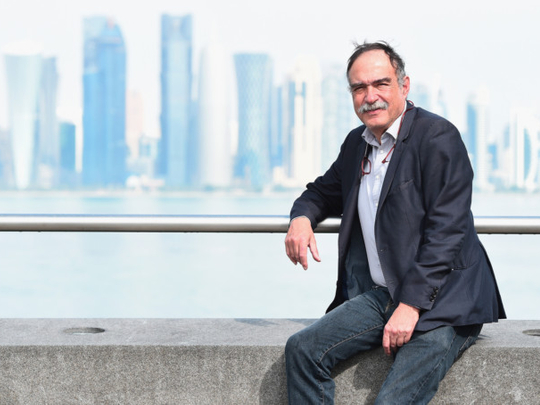
In the current cinema landscape, Portuguese producer Paulo Branco stands tall and sometimes stands alone. Despite producing more than 300 films and memorable collaborations with cinema’s finest directors, Branco as an independent producer is part of a slowly diminishing tribe.
“Now there are corporations. It’s less personal. The producer now is one piece and the role of a creative producer is no longer relevant. Instead of boards taking production decisions, I think it’s really important for individual producers to still exist and that’s why I still try to work,” says the 66-year-old, who is in Doha as a Qumra Master.
With the distinction of being a producer with the largest number of films selected for the Cannes film festival — 60 in total — Branco’s life is rich with anecdotes on filmmaking and from his various collaborations with Raul Ruiz, Manoel de Oliveira, Valeria Bruno-Tedeschi, Wim Wenders and more recently with David Cronenberg (Cosmopolis).
Branco recounts the fortuitous start of his career, which some film historians believe revived de Oliveira’s own fortunes, “Manoel’s Ill-Fated Love had premiered on television and had been panned and described as a disaster. I released it as a film and the same critics who hated it now loved it as a film. Manoel was a force [the Portuguese director died at the age of 106 and was making films until he was 104], and I knew we would do memorable things together. From that moment, the cycle continued and I was producing films.”
Branco commands a reverential awe from cinephiles, and yet, he finds his experience amounts to very little. “The industry has changed, like the world has changed. I am learning as much as everyone else and I don’t think all these years of experience offer much,” he says.
As a creative producer, Branco has extended opportunities to many first-time directors — having rarely, if ever read a script. “I don’t read scripts so I tell people not to send them to me. With new directors it’s always intuitive and to be honest, I like films that I feel need me. I need to know that I can bring something different to the film. I’m not interested in films that any other producer can do.”
Throughout his career, he has found the experience of creative collaboration to be vexing, exasperating and exhilarating — “sometimes all within the same film”. “Each film is different. It can be collaborative or argumentative but the end goal is to be comfortable with the final result. Each film has its own problems, own solutions and sometimes, even no solutions,” he says.









